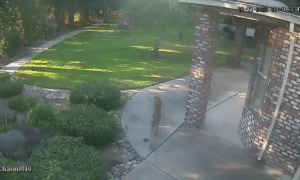“This post contains affiliate links, and I will be compensated if you make a purchase after clicking on my links.”
Start slowly, and as he grows add in more and more different situations to see how he is progressing with the socialization process. He will let you know if he is frightened, or becomes aggressive in certain environments. If you observe this behavior back off and allow him time to adjust. Never force all sorts of new experiences on a puppy as this can result in the pup becoming timid or afraid. Always speak to the pup in a calm, reassuring voice, and praise him when he confronts a stranger or other dog and responds in a friendly manner.
There is a critical age at which puppies will easily accept new situations. That is from about 4-6 weeks up through about 12-14 weeks of age. Expose the pup to as many different situations as possible during that time, while being sure to keep him safe and protected from things that may startle him or expose him to disease.
One of the best and easiest ways for socializing all pups is to enroll him and yourself in obedience training classes. This is great for the crucial bonding between you and the dog, plus he will be exposed to other dogs and their owners. If this environment causes the pup to withdraw and show signs of fear never force the issue with him. Wait a few weeks and try again. Pups mature quickly, and he may be more receptive in another month or two.
As you can see socializing a puppy is a process and important part of owning a dog, so take the steps necessary for a well-adjusted adult dog.
Has this article been helpful? Please leave comments below.


















Robin Simrill
says:*approach not approch
Robin Simrill
says:Does she know “down”? also, get her her “spot” and have her “down” & “stay.” let her know you “got this.” For people, it helps to have them NOT look at her, or talk to her. it’s too much stimulation.
Give her lots of time to see no one is bothering her.
Later, if she does feel safe enough to approch them (in a non-threatening way), have them turn sideways, keeping a calm frame of mind (you & the other person–also, speak calmly to each other). Later still maybe have them offer her food, like a small piece of meat.
One of my dogs is a rescue, he is getting better after 2 years. He happens to love being scratched right above his tail– people he doesn’t know make him nervous if they touch his head, but scratch him there and it’s instant friend for life. If she has a “sweet spot” like that, it helps.
Another rescue we had was taken from an abusive situation at age 12 and was terrified of men, but very gradually she learned to trust the men in the family. after awhile she loved my husband more than anyone and wouldn’t leave his side. She understood ALL family members loved her and became affectionate and content.
Have patience with her, be calm & let her know “I got this” (makes her feel safe). Try not to get nervous that she’ll misbehave, be proactive with setting her up to succeed by giving her her spot (a blanket in a certain area where she feels protected, for instance) so she knows she’s expected to stay there, have the people ignore her (it sounds mean but it’s not) until she’s ready to approach them, all that; she’s young and does want to please
you. Something to chew on like a kong toy with peanut butter can help with her nervousness.
Good luck! She’s young and that’s good, her brain is still growing, it can make happier pathways.
Susan Thieleman
says:I have a six month old, former feral pup that is very fearful when we meet people, dogs etc or when people come to my home. She has been this way since day one. I take her with my big dogs, hoping they will give her confidence, but that doesn’t seem to be working. She barks aggressively, raises her hackles and maintains a very threatening posture. I foster rescue puppies so I have people in and out of my home frequently and my 20 year old son lives with me and she barks at him in the morning when he comes upstairs, when he comes home from work, when he comes out of the bathroom. I’m the only one she seems to trust. Can you offer some guidance for us, please?